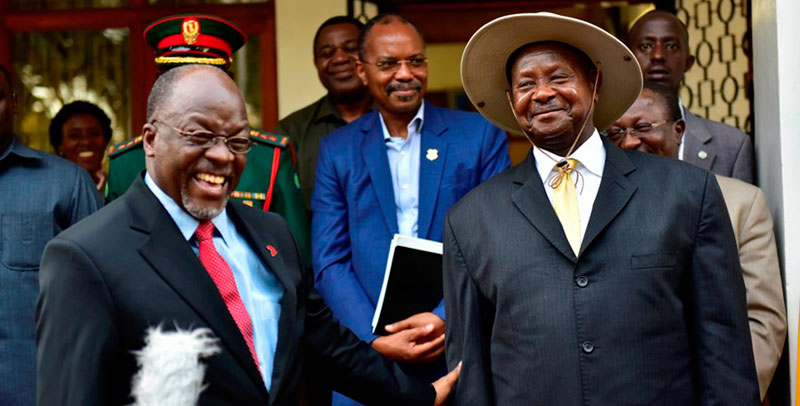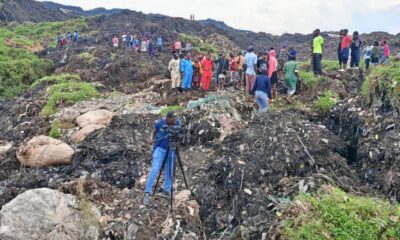Guest Writer
We need political will to tackle corruption

President M7 applauded his counterpart Magufuli’s methods of fighting corruption and promised to do the same
In the previous weeks, media was awash with a bribery story which involved top government officials. This came nearly after President Museveni had declared war against all corrupt bureaucrats in his government.
It was during the same occasion that the President applauded his counterpart John Pombe Magufuli’s methods of fighting corruption and promised to do the same. However, many have regarded the President’s promise to fight corruption a purely cosmetic and unrealistic with claims that he has always handled the corrupt with soft gloves.
Corruption remains an obstacle to Uganda’s development gains. The country scored 25% and ranked 151st out of 179 countries in the Corruption Perception Index (CPI) annual report conducted by Transparency International in 2016. Uganda dropped 12 places from its 139th position in the 2015 Transparency International report.
Uganda is experiencing a new wave of organized, grand and syndicated corruption tendencies at the expense of tax payers’ money. Although Uganda has strong laws and politics on corruption, application of such laws is selective and tends to catch up with the small fish who are often less influential and have no political connectedness.
By implication, the poor, vulnerable and marginalized continue to be disproportionately affected by corruption in almost every sector that hinges on their wellbeing.
For instance, there is a child who fails to attain an education because of corruption in the education sector, a patient in a rural health centre dies every day because of embezzlement of medicines under the health sector, and passengers risk their lives as a result of the driver paying a bribe to traffic officer to get away with a traffic offence.
Additionally, corruption in Uganda has become an acceptable norm, where the public thinks without it things cannot get done. The growing culture of corruption in Uganda has not spared the youth either.
The Uganda Youth Survey Report (2016) revealed that a significant proportion of youth believe corruption is profitable, would take or give a bribe and would not pay taxes on earned income. More importantly, these are the future leaders of tomorrow, who are more likely to take on the corruption baton from the current corrupt government officials.
President Museveni has often decried government officials who take bribes from investors and as a result constrain investment opportunities. However, he has equally not shown willingness to deal with those found culpable of corruption acts. Therefore, the top leadership must exhibit willingness in the fight corruption if we are to uproot the vice.
The government needs to empower both state and non-state actors who are working towards the corruption fight. Selective application of laws should be dealt away with to overcome the issue of small fish vs. big fish and the fight against corruption should be championed by the top leadership so that the public can appreciate government efforts than it is the case now.
The public needs to be reminded that since corruption affects everyone, fighting it is a national issues which contributes to the National Anti-Corruption Strategy (NACS) vision of zero tolerance for corruption, and more importantly improved efficient and effective service delivery.
Comments


















